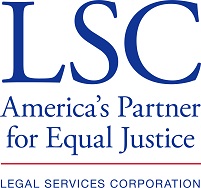Table of Contents
Exempt Property
What Does Exempt Property Mean?
Property that is protected and cannot be taken by your creditors to pay off a judgment for debt.
Who May Claim an Exemption?
You or your spouse, your children, or anyone else whom you give permission to, may claim an exemption on your behalf.
Can an Exemption be Waived?
It depends. You cannot waive an exemption in favor of an unsecured creditor before your property has been levied. An unsecured creditor is a creditor to whom you have not given a secured interest in property, such as your home.
What Property Qualifies as "Exempt" under Utah law?
The following is a list of property that is exempt from being used to pay off a debt:
- Homestead;
- Burial plot for you or anyone in your family;
- Health aids that are reasonably necessary;
- Public Benefits such as General Assistance, Social Security, Disability, Unemployment, Worker’s Compensation, Medical and Veterans;
- Benefits used for medical, surgical, or hospital care for you and your dependents;
- Alimony, Child Support & QDROS or separate maintenance;
- One clothes washer & dryer, refrigerator & freezer, stove & microwave, and sewing machine;
- All Carpets in use at your house;
- One year supply of food and other provisions for you and your family;
- Clothing that is necessary (not including jewelry or fur coats);
- Beds and bedding for you and your family;
- Artwork depicting or produced by you or your family (unless such artwork is held as part of a trade or business);
- Insurance proceeds, judgments, or settlements that pay for bodily injury or wrongful death to you or someone for whom you are or were a dependent;
- Cash value of Life insurance policy;
- Pensions, IRA, 401(K) plans and retirement plans;
- Sofas, chairs, and related furnishings, up to a total value of $1,000;
- Dining and kitchen tables and chairs needed for one household, up to $1,000 per debtor;
- Animals, books, and musical instruments, up to a total value of $1,000;
- Heirlooms or other items of “particular sentimental value” up to a total value of $1,000;
- Implements, professional books, or tools of your trade, all having a total value not exceeding $5,000;
- Motor vehicle for each driver that does not exceed $3,000 in value. The vehicle must be used for every day use, and not for recreational purposes;
- Portion of unpaid but earned wages;
- $5,000 for each debtor of real property that is not where the debtor lives;
- House with equity up to $30,000 for each debtor if the debtor lives there.
Is my Exempt Money Still Exempt if I Place it in a Bank Account?
As a general rule, money that is exempt remains exempt so long as it is traceable in your bank account. A court will consider the first money in and first money out, or last money in and last money out to decide what money in the account is exempt. If your exempt money is mixed with other money in your account, it may be difficult to trace and may lose its exempt status.
Are there Exceptions that Allow Exempt Property to be Attached or Garnished?
Yes. A creditor may garnish exempt property to enforce
- alimony,
- spousal support,
- child support,
- wages,
- state or local taxes,
- money owing for the purchase of personal property,
- labor or materials used to make, repair, improve, preserve, store, or transport property,
- statutory liens or security interests in property,
- money owed as a special assessment for public improvements benefiting a piece of property (e.g., money owed for the city putting in a curb and sidewalk)
What Can I do if a Creditor Unlawfully tries to or does Attach or Garnish my Exempt Property?
You, your spouse, or a dependent, may ask a court to stop the creditor from taking exempt property. You might receive damages if a creditor takes exempt property. The court may award costs and attorney’s fees to you.
Are there limits on the amount of my income that can be garnished?
Yes. Creditors can only garnish a certain percentage of your income. The U.S. Department of Labor has made rules about garnishment. Those rules can be found on the U.S. Department of Labor website.
May I Claim Exempt Property if I File Bankruptcy?
You may only exempt property in your bankruptcy case that are expressly permitted under Utah law.

